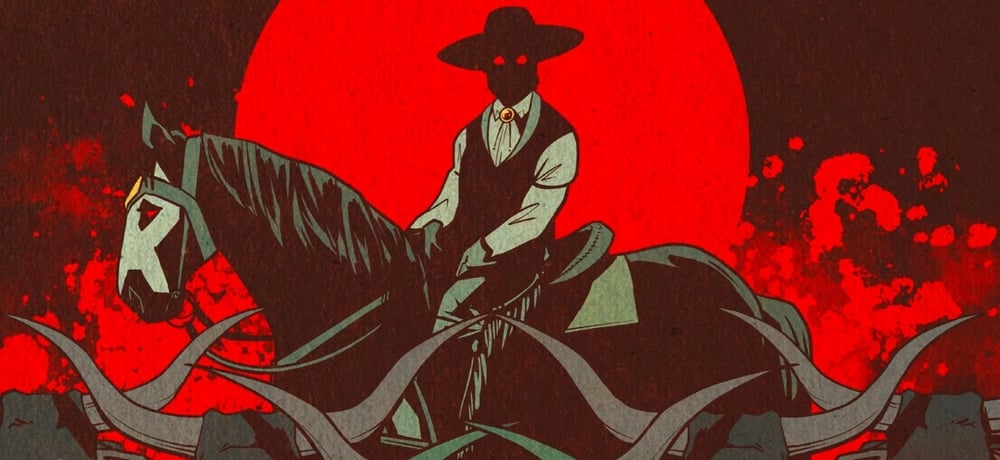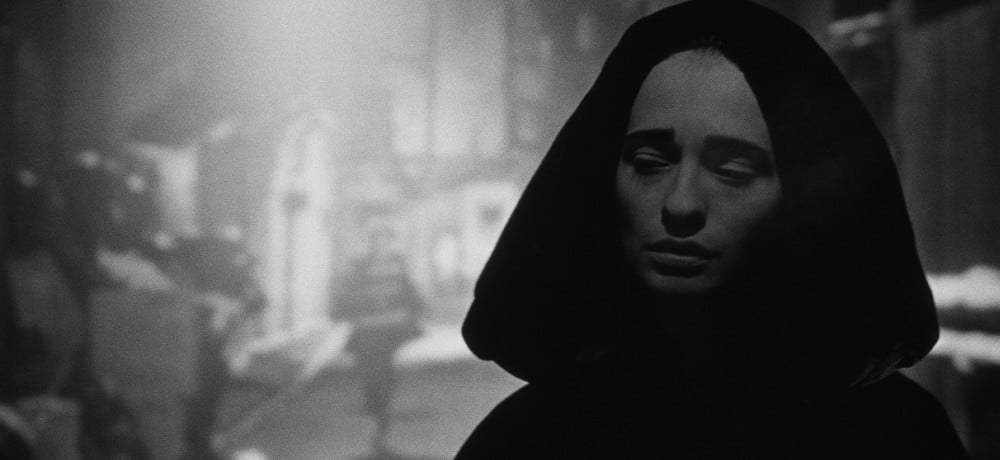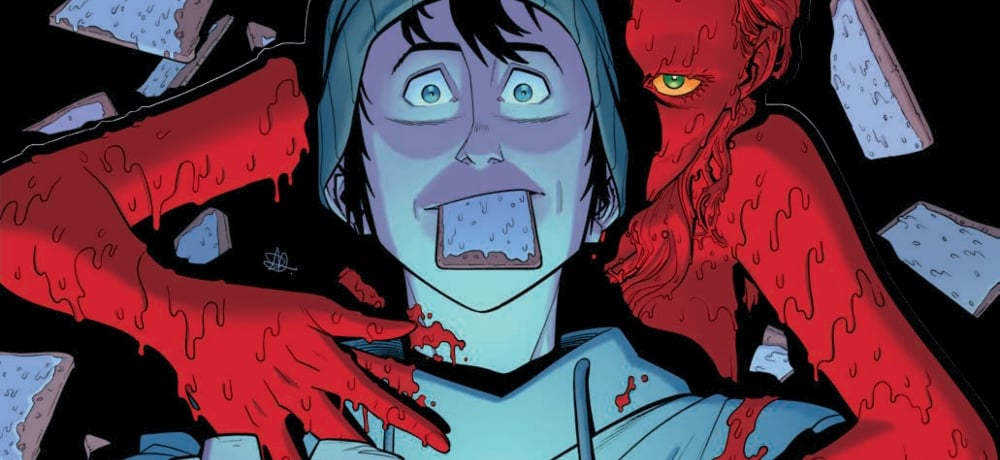





When most people think of Alfred Hitchcock’s 1963 film, The Birds, their minds usually jump to the frightening image of the poor, innocent school children running down the street next to a green-clad Melanie Daniels, played by Tippi Hedren. The sounds of the children shrieking as crows dive in and peck viciously at their little scalps is undoubtedly one of the most disturbing and iconic scenes in cinematic history, but what many Hitchcock fans may not realize is that the true terror of this film doesn’t lie with the birds, but with the folk of Bodega Bay. The townspeople’s treatment of outsider Melanie Daniels is the real thing to fear in The Birds, and the winged vertebrates themselves act only as a personification of the locals’ unwelcoming attitudes.
At the start of the film, we see renowned socialite Melanie entering a pet shop in San Francisco in search of a noisy miner per her father’s request. While in the shop, she runs into a man named Mitch Brenner (Rod Taylor), who toys with Melanie, asking for help finding lovebirds before admitting he’s seen her before in court. Mitch tells Melanie he’s aware of her reputation as an infamous prankster and had decided to give her a taste of her own medicine. Mitch then takes off, but not before Melanie retrieves his license plate information and follows him to his weekend home an hour up the coast in Bodega Bay.
Melanie brings a pair of lovebirds with her and drops them off in Mitch’s home with a note that claims they’re a gift for his younger sister, Cathy (Veronica Cartwright). Mitch spots Melanie as she jets off in a little boat across the bay, but just as he swings his car around the shoreline to greet her on the other side, a seagull swoops down upon Melanie’s head, as if it purposefully meant to harm her. Mitch tends to Melanie with a first aid kit and an invitation to dinner, but little do they know, this air raid is only the first in an ongoing series of strange, brutal attacks by the many birds of Bodega Bay.
The flying assaults begin slowly and steadily build, starting with a flock of seagulls attacking the children at Cathy’s birthday party and escalating into a ferocious onslaught by hundreds of birds at the Tides restaurant and pier towards the climax of the film. Meanwhile, the people of Bodega Bay initiate contact with Melanie through subtle suspicion and general distrust, such as local schoolteacher Annie Hayworth (Suzanne Pleshette) quizzing Miss Daniels about why she’s in town and how she knows Mitch. As the birds begin waging war on the village, paranoia spreads its wings and takes flight amongst the townspeople, who, desperate for an answer, point fingers in newcomer Melanie’s direction.
Immediately following the random gull strike on Melanie’s head, another old bird makes herself known in the form of Mitch’s mother, Lydia (Jessica Tandy), who defends her nest against the perceived intruder. Mitch introduces the two, explaining how Melanie came to the area sporting a present for Lydia’s daughter, Cathy, and that she will be joining them for dinner. Lydia is clearly not amused, especially when she learns that Melanie’s gift is lovebirds, and she does everything in her power to ward this beautiful young woman away from her only son. Lydia whispers to Mitch later on that she’s heard rumors of rich little Melanie’s wild reputation, commenting that she’s known as the girl who jumps into fountains naked during her summers in Rome, and that she hangs around with questionable crowds. Lydia goes so far as to openly suggest in front of Melanie that she should probably head home, and even tells Melanie that she’s not sure if she likes her.
However, when their home is infiltrated by a swarm of birds and Lydia finds her friend Ned Fawcett dead in his room, eyes pecked out and surrounded by the winged creatures, she makes a confession. Lydia admits to Melanie that ever since Mitch’s father passed away, she’s been afraid to be alone. It’s not that Lydia hates Melanie, it’s just that she isn’t ready to let her young leave the nest, or to share her territory with the youthful and attractive Miss Daniels. Up until then, Lydia viewed Melanie as a threat, which explains her puffed-up defense. Melanie, of course, sweet and caring as she is, quickly forgives and understands Lydia’s concerns. Unfortunately, her confrontations with the rest of the inhabitants of this quaint little xenophobic town aren’t nearly as picturesque.
After Lydia and Melanie’s touching reconciliation, Lydia frets over the safety of her daughter Cathy, who is at school. Melanie offers to check in on her, and upon her arrival, finds copious amounts of jet-black crows perched ominously on the schoolyard’s jungle gym. With the help of Miss Hayworth, Melanie wrangles the children and leads them down the road to their homes. It’s not long before their brisk pace turns into a full-out sprint, however, as the crows leap from the bars and rain down upon the children like squawking bullets sent straight from the skies. The children run as fast as their little legs will carry them, but the birds injure several while they cry out for help.
Melanie and Annie lose each other in the midst of the chaos, and Melanie winds up at the Tides restaurant once again, where she calls her father, the head of a newspaper back home in San Francisco, to report the incident. The problem is, he doesn’t believe her any more than the citizens sitting in the café do. She tries to explain over the phone that she and the kids were attacked by hundreds of crows, but he just claims that she’s hysterical. Meanwhile, the Tides patrons stare Melanie down, and one named Mrs. Bundy even goes so far as to tell Melanie she must be mistaken. Mrs. Bundy studies birds, and after repeatedly stating that different species never flock together, and that crows never attack humans, she informs Melanie that it must be she who has irritated them, and that she must have brought the attack on herself—and thus, the blaming begins.
Just a few moments after everyone tells Melanie how delusional she is, they stand at the window and watch as a small group of birds first cause a fire and then an explosion, before launching a complete invasion. Dozens upon dozens of flying game charge the area, sinking their talons into any flesh they can find, leaving bloody corpses and screaming survivors in their wake. Now the townspeople finally believe Melanie, but their fear of this unexplained phenomena and their general suspicion of strangers quickly lead them to the conclusion that it is she who caused it. Ever since Melanie first waltzed into town in her Chanel-esque, lime-green suit and fox fur coat, they knew she was up to no good, and since she seems to be a lightning rod for these horrifying strikes, it only makes sense that she should be the one to shoulder the blame.
Tempers flare as the scared people of Bodega Bay stand and squabble amongst themselves, murmuring and glaring at Melanie accusingly. They flutter about aimlessly, throwing darting glances her way, until one terrified patron stomps up to Melanie and begins screaming, “I think you’re the cause of all of this, I think you’re evil! Evil!” Melanie slaps the woman back to sanity while tears stream down her face, and Mitch, who has just arrived, quietly leads her to his car, where they head back toward his home.
It’s no mistake that the most prominently featured birds in the film are the crows. Crows are a permanent residence of Bodega Bay, and just like the people who occupy the town, these Butcherbirds don’t take kindly to visitors. It’s also no coincidence that the birds only stop attacking once Melanie leaves town. Technically, the birds are a McGuffin; a term Hitchcock invented for an unexplained item that ultimately serves no real purpose other than to move the plot along. Metaphorically, though, the crazed birds represent the townspeople and their frantic, fear-based treatment of outsiders.
People dividing when chaos erupts is natural, but foolish. Just as the different species of birds band together to create an unspoken army against the humans, it is only when the Brenners from Bodega Bay ban together with Melanie Daniels of San Francisco that they finally triumph and find peace, as the birds finally cease their attacks and leave them be. Humans’ natural tendency is to divide; to form cliques. However, it is only when we overcome our differences and unite that we are at our best and most necessary form of strength and serenity. After all, we’re all just chordates from the same kingdom of Animalia. We belong together, not apart.